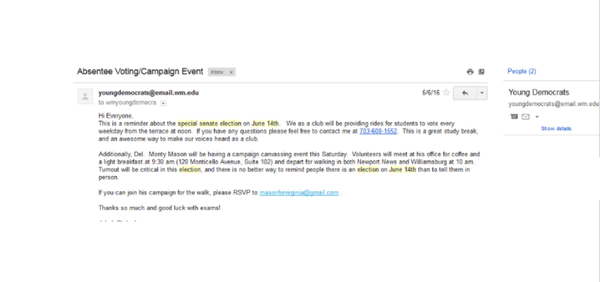The ongoing COVID-19 pandemic has presented unprecedented challenges to America's voting systems: high demands for mail-in ballots, long wait times, and questions about safety and security as millions of Americans show up to the polls between now and election day.
These issues have doubtlessly been exacerbated by the current health crisis. But they existed before COVID, and they'll be there after it. Some issues with America's voting system result from pure incompetence - just look at the four/five hour lines at early voting sites in New York City this past weekend, or the 30,000 delayed absentee ballots just in my home county in Ohio. Some issues can be attributed to malevolent and targeted voter suppression - take the voter intimidation of the president urging his supporters to go to the polls and "watch" or Kentucky cutting its number of polling places from 3,700 to 170 during its primary this past June.
Regardless of whether barriers to voting are borne of incompetence or purposeful repression, their results are usually the same; they disproportionately affect low-income communities and people of color from exercising their First Amendment right. And these barriers are being made even worse by the COVID-19 pandemic.
For this election and every election to come, there needs to be a concerted effort to reduce barriers to voting. Our democracy is only as good as the ability of its citizens to participate in free and fair elections.
Making election day a federal holiday is a good place to start.
Eleven states and Puerto Rico have made Election Day a civic holiday. That should be expanded nationwide. Since Election Day is on a Tuesday, millions of Americans have to figure out how to fit voting into their schedule. And while that might not be a big deal for some, it prevents a not-insubstantial amount of the populace from going to the polls. In 2016, 14% of eligible voters who didn't cast ballots cited scheduling conflicts or lack of time as the reason they didn't vote.
The problems presented by having to vote on a workday disproportionately affect lower-income voters, who are less likely to have jobs that give flexibility in scheduling or the ability to take time off on the first Tuesday in November. Making Election Day a federal holiday would be a step in mitigating this barrier.
Some election analysts have argued that making Election Day a holiday would lead to longer lines at polling places. They've advocated expanded early and mail-in voting as an alternative to showing up to the polls on Tuesday - something which has become extremely popular this cycle as voters try to avoid the dangerous congestion of crowded polling places.
But it's not a question of either/or. Election Day should be a holiday and early/mail-in voting should be more readily available. We can (and should!) take measures to reduce weight times while ensuring that every American has the opportunity to vote on Election Day.
In this sense, COVID-19 has presented an opportunity for voting reform; more areas have had incentives to expand alternative ways of voting with the pandemic. We should all hope that these changes are kept in place for every election to come. But if we're going to ensure that voting really is a right of every American, then making Election Day a federal holiday is an important next step.



















